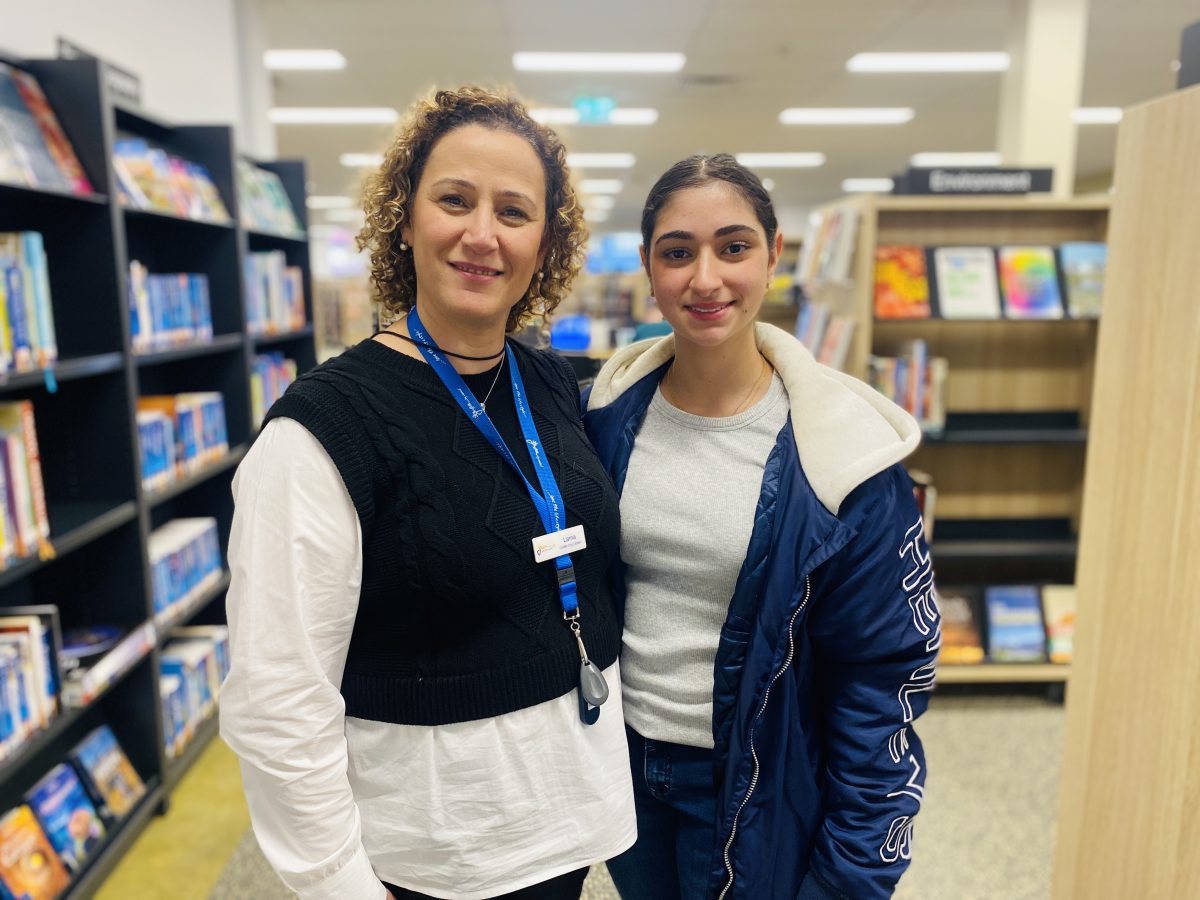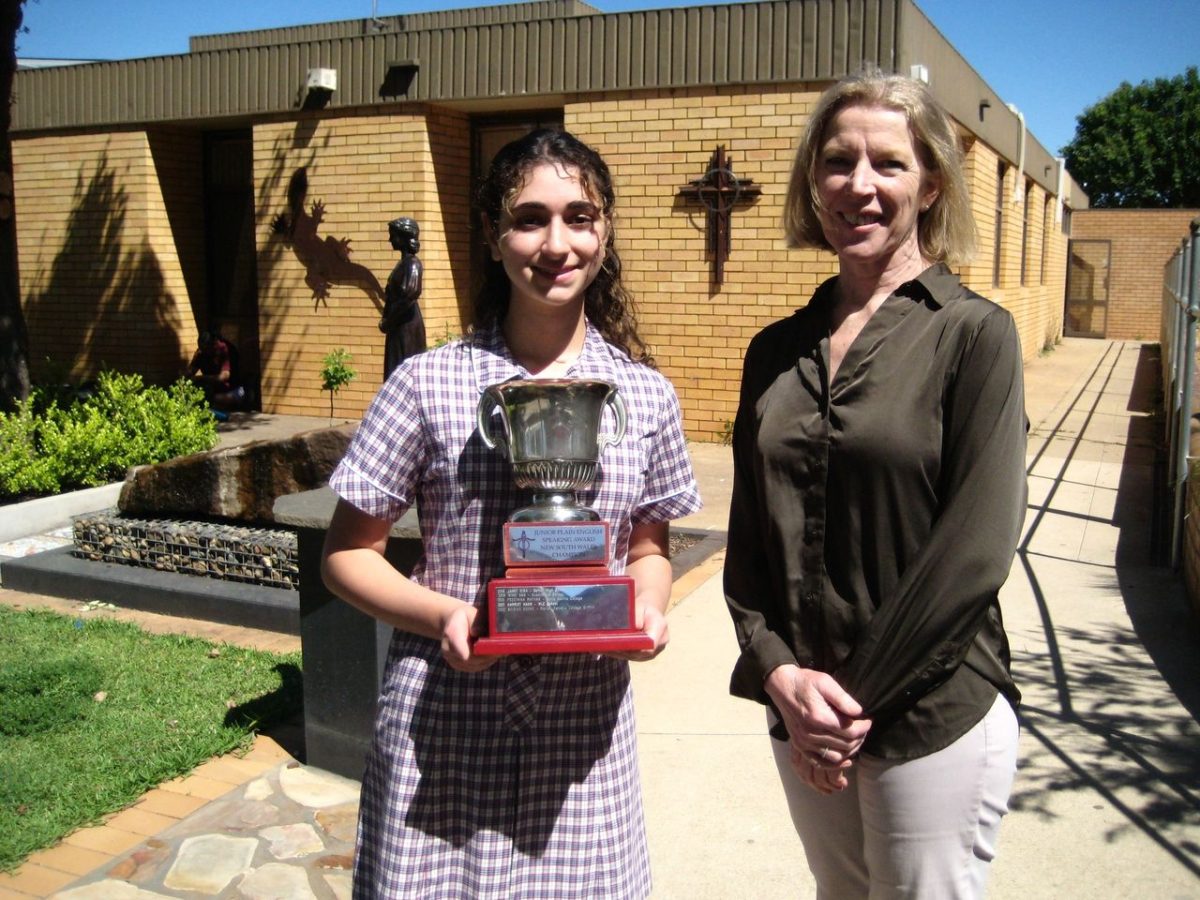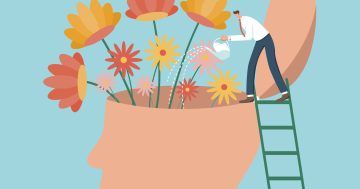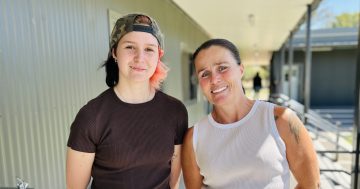
Shirine Nehme with her mum and inspiration, Lama. Photo: Oliver Jacques.
A Marian Catholic College Year 11 student has championed the cause of farmers and Indigenous men’s mental health in the finals of a major statewide public speaking competition in Sydney.
Shirine Nehme triumphed in both the local and regional rounds of the Plain English Speaking Award, a statewide program that encourages students to communicate important topics in simple language. She went on to represent the Riverina at the semi-finals, narrowly missing out on going all the way.
Despite being just 16, Ms Nehme has already gained a reputation on the public speaking circuit. Two years ago, she made the semis of the nationwide Legacy Junior Public Speaking Award, doing a presentation on the mistreatment of women when giving birth in rural hospitals – a talk based on the personal experience of her mum Lama.
She has also applied to be a speaker at TEDx, a global public speaking forum that takes place in Griffith for the first time in August (a final list of speakers for this event is yet to be announced).
Ms Nehme’s passion for rural equality and social justice has seen her shortlisted to a be representative for the Australian Youth Council – a body that highlights issues faced by children to members of parliament.
We caught up with her to find out how she overcomes public speaking nerves, why she chose the topic of rural men’s mental health, the influence of her mother and her career plans.
Public speaking is terrifying to most people. How do you conquer the nerves?
It’s definitely a practice thing. I’ve been reading at my church since I was 12. If you get nervous, practise every chance you get. Start small and work your way up.
I’m also confident in what I’m speaking about; I do my research. Having an interest and caring about what I was talking about helped me put those nerves away.
Do you feel fear at all?
I do get nervous beforehand, but as soon as I start I’m relaxed.
Everyone should try public speaking at least once. Not necessarily competitively, but it’s a good skill to have. It provides a platform to share messages of interest to you.

Shirine Nehme after winning her Legacy speaking award, with Marian Principal Dr Penny Ludicke. Photo: Facebook.
Why did you, as a young woman, choose to speak about rural men’s mental health?
It’s important to me because a lot of guys I know grew up on a farm.
For farmers and Indigenous men, the suicide rates are much higher than for most others.
I think these demographics tend to be a forgotten group. For the most part, there is very little support for them.
Lately, farmers in particular have been under a lot of financial stress. Prices in grocery stores don’t reflect what they’re being paid.
Are you concerned about the lack of a mental health unit at Griffith Hospital?
Yes, that makes things worse. For all people, but particularly those who are Indigenous, there is a lot of cultural significance in being near your home. Having to reach out for help is already difficult, so having to leave your home and town so you can find help makes it so much harder.
How has your mother, Lama, influenced you?
She is definitely a big influence; I look up to her as a role model. She emigrated to Australia from Lebanon when she was 28, so it was a massive cultural shift – having to adjust to a whole new country and learn a new language and then experience birth trauma – that all contributes to her strength and resilience.
You’ve spoken out about the often poor treatment of women like your mother when giving birth in rural hospitals. Are things improving?
There was an inquiry into it in NSW. This is a step in the right direction. However, a lot of women felt the inquiry response was anti-climactic; there wasn’t much empathy for their experience.
What career would you like to pursue?
I’m interested in medicine; I’d like to become an obstetrician, gynaecologist or paediatrician.
If you or someone you know needs help, you can contact:
Lifeline’s 24-hour crisis support line – 13 11 14
Suicide Call Back Service – 1300 659 467
Kids Helpline – 1800 551 800 or kidshelpline.com.au
MensLine Australia – 1300 789 978.
Original Article published by Oliver Jacques on Region Riverina.











